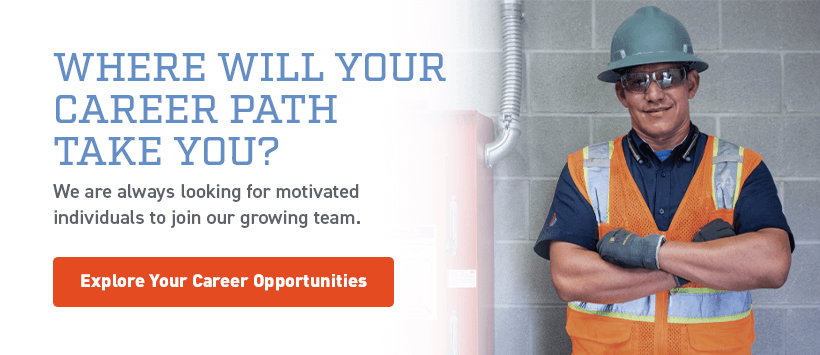Stress, uncertainty, and fear about COVID-19 is having a profound impact on employee mental health and addictive behaviors. According to a McKinsey report, 3 in 5 employees are experiencing systems of depression, anxiety, or both. Drug overdoses are soaring - more than double in the past five years - as isolation and economic upheaval continue to fuel the opioid crisis. While behavioral health (BH) concerns inherently affect the individual, they also impact the employer emotionally and financially as addiction costs employers $81B annually.
Early intervention is possible and can be immensely helpful for all involved. However, many employers don’t know what to look for, how to feel about it, or how to respond.
As COVID-19 continues, business success will increasingly rely on employee retention. One effective employee retention strategy is actively supporting employee mental health through planned awareness events.
Before discussing five tips your company can leverage to create and conduct a successful event, here is a brief overview of our recent mental health awareness event.
Impact Fire’s Mental Health Awareness Event
Successful companies, now more than ever, understand the importance of mental health and the necessity to support their employee’s mental well-being. At Impact Fire, we value our diverse group of talented and passionate fire and life safety professionals and prioritize mental health to promote sustained employee satisfaction, appreciation, and engagement.
Over the last few months, our company-wide safety committee, which includes a representative from each district location, received requests to bring awareness to mental health. As a result, Impact Fire designed and conducted two well-being-related events:
- Recognizing & Responding to Mental Health & Addiction Issues for Managers
- Mental Health & Well-Being for Employees
These first sessions are part of an ongoing employee wellness initiative designed to embed mental health awareness into our overall safety culture here at Impact Fire. We received an overwhelmingly positive response from our employees and are excited to launch future initiatives to provide continual mental health support.
Kristen Cooper, Senior Director of Safety, Risk, Compliance, and Fleet at AI Fire, Impact Fire’s parent company, had this to say about the positive employee response.
“We heard from so many people that it meant a lot to them that the company invested in a psychologist to spend time with them, that we’re treating mental health the same as physical safety. That I know of, we had at least four employees come forward and discuss getting mental health treatment through our company benefits. It was a very emotional month for us, in a really good way.”
5 Tips on Running a Succesful Mental Health Awareness Event for Your Employees
Based on our experience, here are a few tips your company can leverage to ensure a successful mental health awareness event.
1. Provide Sensitivity Training to Event Facilitators
Sensitivity training is often overlooked as an integral prerequisite to conducting a successful mental health awareness event. Mental health is a complex and uncomfortable topic to cover in the workplace. Proactive measures need to be taken to ensure event facilitators understand how to approach this topic appropriately with sensitivity and vulnerability.
Sensitivity training will teach managers and event organizers effective communication strategies such as:
- Active listening
- Demonstrating empathy
- Asking open-ended questions
- Focusing on themes rather than specific details
- Discussing health holistically without mental health as the focal point
- Framing support-centric questions instead of solutions
- What can I do?
- What would be helpful?”
- I’ve been through something similar – would it help if I shared my experience?
Kristen had this to say about Impact Fire’s approach to sensitivity training.
“Before the session with all employees, we first trained our leaders of people on how to recognize and respond to mental health and addiction issues. We also wanted them to understand the importance of sensitivity and creating a safe space during the all-employee sessions. We brought in Dr. Aaron Weiner to do the live Teams training with our leaders.”
2. Create a Safe and Receptive Environment
Establishing an open and safe environment is essential to conducting a successful mental health awareness event. It is the responsibility of the event facilitator, whether a general manager, HR, or a motivated employee, to create a space conducive to vulnerable discussions as mental health can be a sensitive topic. The event facilitator’s responsibility to create a safe ecosystem is why it is crucial to provide them with sensitivity training before the event.
Event facilitators should:
- Be sensitive as the topic may drum up emotions for some.
- Be vulnerable as the more you are willing to share from your own circle and experience, the safer it feels for all.
Before jumping into the activities, event facilitators should take the time to introduce themselves, the topic, and its relevancy. Event facilitators, if comfortable, should share a personal experience they’ve had that deals with mental health. Sharing personal experiences and initiating vulnerability helps “break the ice” and provides attendees with an example of vulnerability from leadership.
3. Invest in a Mental Health Specialist or Psychologist
Inviting a mental health specialist to your event adds a credible educational component to the event. From an employee perspective, the investment demonstrates a company-wide commitment to supporting employees and reinforces the sentiment that mental health is just as important as physical safety.
Pro Tip
Ask to record training sessions and presentations conducted by the specialist. This provides you with an ever-green on-demand resource you can continually offer employees.
For our mental health awareness event, the safety committee invited Dr. Aaron Weiner, a board-certified Psychologist and addiction specialist, to conduct sensitivity training for managers and record a 20-minute educational video to be shown at the start of all-employee sessions.
4. Create an Engaging Agenda with Multiple Activities
Activities for mental health events shouldn’t rely solely on open discussions. Succesful events inject dynamic individual exercises and team-building activities to address different aspects of mental health, including self-care, gratitude, and mindfulness. Including a wide variety of activities will help mitigate burnout, reduce employee stress, and promote positive mental health. By incorporating engaging activities, employers encourage their employees to step away from their daily responsibilities, mix up their routines, and engage in something uniquely different.
Here are a few examples of engaging activities your company can use in future mental health awareness events:
- On-site yoga
- Gratitude activities
- Guided meditations
- Wellness gift exchange and giveaways
- Team-building activities including Spartan Races, egg races, and water balloon tosses
Here is Kristen’s breakdown of Impact Fire’s mental health awareness workshop agenda.
“For the all-employee sessions, a leader in each district led the event, which started with a 20 minute recorded training from Dr. Weiner. One of our district General Managers then led the group through a recorded well-being meditation activity- what an important tool in our self-care tool kit! Lastly, the groups participated in a gratitude activity.”
5. Provide Employees Additional Resources
Before the event concludes, it is essential to provide employees with additional resources and a clear course of action for addressing behavioral health concerns moving forward. Let employees know who they can talk to if they or someone they know is experiencing mental health related issues. If your company’s medical plan includes virtual therapy, make sure employees are aware and understand how to get started.
Related Resource
Impact Fire's Mental health support
Check out our expansive mental health resources for full-time Impact Fire employees. Learn More →
Supporting Employee Mental Health: A Long-Term Commitment
While mental health can be a difficult and uncomfortable topic to cover at work, companies can use the aforementioned tips to create an engaging mental health event that provides employees the knowledge and tools to recognize, communicate, cope and regulate their emotions and mental health challenges. By investing in your employees' mental health, you enable them to flourish in their roles and reach their highest potential.
We are proud of the success of our first mental health event and are excited to launch future initiatives to provide continual mental health support for our employees. Individuals interested in joining the Impact Fire team should get in touch with us to learn more about how they can begin their unique fire and life safety journey.
A special thanks to Kristen Cooper, Senior Director of Safety, Risk, Compliance, and Fleet at AI Fire, for helping us illustrate how to run a successful mental health awareness event. We wish you continued success in your inspiring fire and life safety career.







